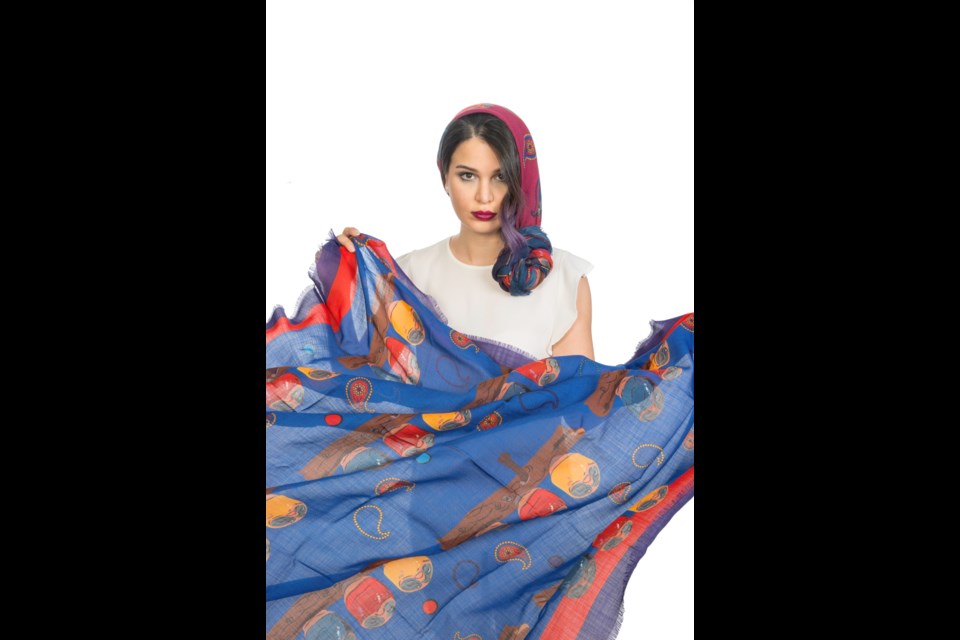A scarf can represent different things to different people.
To some, it’s a fun fashion accessory. To others, it’s an object of oppression. To Jamileh Pourfouladchi, it’s both. The North Vancouver fashion designer immigrated to Canada from Tehran, Iran in 1996. While she was living in Iran, she resented having to wear a hijab, the traditional Islamic head covering for women, which has been compulsory in the country since the 1979 revolution. During her time as a university student, Pourfouladchi recalls having to wear conservative brown, black or grey clothing. Today though, she says acceptable clothing colours in her home country are not as limited as they once were and many young people are incorporating art and vibrant hues into their outfits.
“The new Iranian generation are exposed to the Internet and they just don’t want to be limited to some passive and dark colour. They want a new style, a fashionable style,” she says.
Pourfouladchi had young Iranian women in mind when she was designing her new line of scarves.
“I want to introduce them to something more colourful and artistic,” she explains.
She established her Avant-garde Moda label in 2015 and just released her first collection of silk and wool printed scarves for the fall/winter 2016 season. There are eight different designs, one inspired by Pablo Picasso’s “The Dream,” the rest born from Pourfouladchi’s own imagination.
A 2013 graduate of Kwantlen Polytechnic University’s design, fashion and technology program, for her final-year student project Pourfouladchi designed a capsule collection for jet-setting Iranian women who want to dress as they please while abroad, while still maintaining a sense of national identity. Avant-garde Moda emerged from that groundwork.
The company website states that many Muslim women are “pinned in between two contradictory and oppressive forces,” one of which makes women wear hijabs, and another that “others” Muslim women who choose to wear hijabs and other cultural attire. Avant-garde Moda scarves “stem from a dialectical relation women from the Middle East have in the world,” the website continues. “We are oppressed by both patriarchal societies that belittle us as women, and also the Western notion that we are backwards and passive.”
The aim of the fashion label is to create artistic scarves, each one telling a story or depicting colourful imagery that brings to life what might otherwise be marked as an object of oppression.
Pourfouladchi designs the scarves locally and has them manufactured in Macclesfield, England, once the world’s biggest producer of finished silk. Due to the cost and quality, only a small number of her pieces are available for sale.
“I don’t want to mass produce because it’s art. It’s just limited.”
She says her scarves can be used different ways by women of all backgrounds and beliefs. Some women may choose to wear them as head coverings, while others, like Pourfouladchi, who has opted not to wear a hijab since moving to Canada, can wear them as fashion accessories. Really, it comes down to the individual – “people who want the hijab, it’s their choice, or people who just want to have an accessory, something beautiful around their neck.”
Pourfouladchi’s scarves are available online at avantgardemoda.com.
She is also holding a pop-up on Saturday, Sept. 10, 3-6 p.m. at 11-915 Tobruck Ave., North Vancouver.



